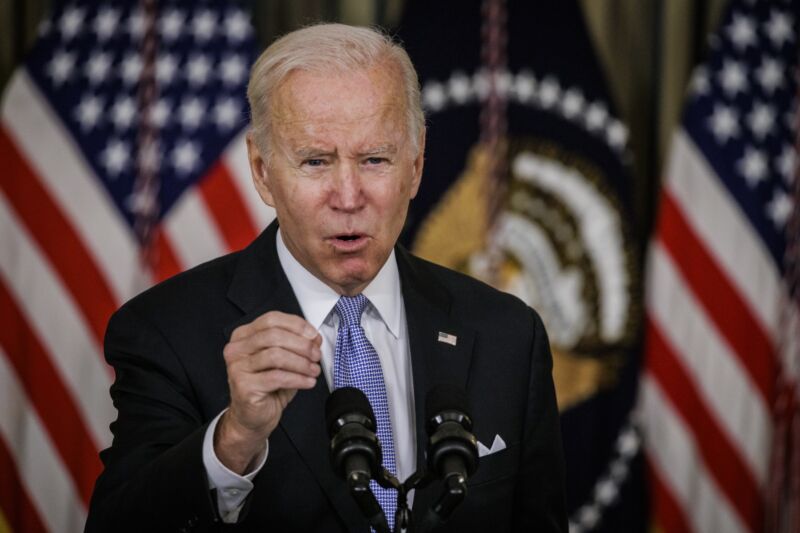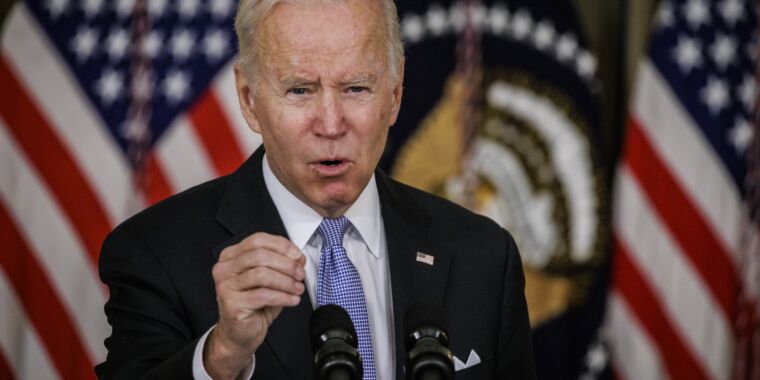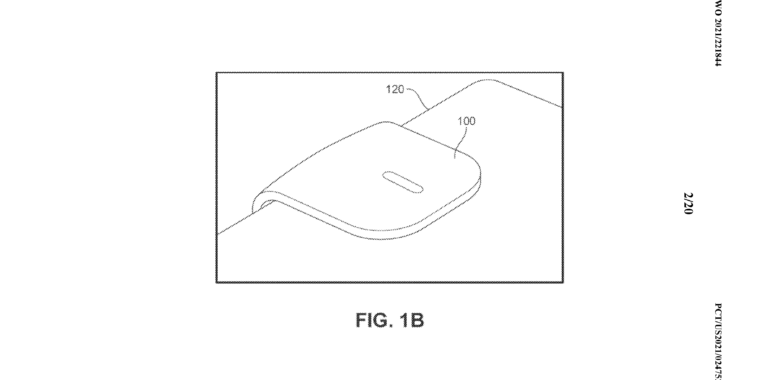
Getty Images | Samuel Corum
President Biden’s $65 billion broadband plan was passed by the House of Representatives on Friday as part of the $1.2 trillion Infrastructure Investment and Jobs Act. While it’s not as big as Biden’s original broadband plan, the Benton Institute for Broadband & Society called it “the largest US investment in broadband deployment ever.”
The biggest portion of the broadband spending is $42.45 billion for a Broadband Equity, Access, and Deployment program that would give subsidies to ISPs that build in unserved areas. Another $14.2 billion goes to an Affordable Connectivity Fund that is essentially a longer-term version of the Emergency Broadband Benefit Program created for the pandemic. Under the new version, subsidies for eligible households will be $30 a month instead of the original $50.
Another broadband provision gives $2.75 billion for digital equity grants to states to “facilitate the adoption of broadband by covered populations in order to provide educational and employment opportunities to those populations.” Grants can cover a variety of needs including training, broadband equipment, and “public access computing centers for covered populations through community anchor institutions.” Covered populations include low-income households, racial and ethnic minorities, rural residents, veterans, people with disabilities, people with language barriers, and people who are 60 or older.
There’s also $2 billion for broadband grants and loans distributed by the Department of Agriculture’s Rural Utilities Service, $2 billion for Tribal Broadband Connectivity Program grants, $1 billion for middle-mile network grants, and $600 million in Private Activity Bonds for broadband projects.
“The bipartisan infrastructure deal will deliver $65 billion to help ensure that every American has access to reliable high-speed Internet through a historic investment in broadband infrastructure deployment,” the White House said Friday. “The legislation will also help lower prices for Internet service and help close the digital divide, so that more Americans can afford Internet access.”
The infrastructure bill was approved by the Senate in August, and Biden is expected to sign the final version soon.
Broadband consumer labels revived
The infrastructure bill revives the Obama-era Federal Communications Commission’s broadband consumer labels that were scrapped during the Trump administration. The bill orders the FCC to issue rules within one year “to require the display of broadband consumer labels, as described in the Public Notice of the Commission issued on April 4, 2016.”
That April 2016 public notice proposed consumer labels that include the full monthly charges and fees charged by each ISP, information on data caps and overage fees, and network performance information including typical speeds, latency, and packet loss. The infrastructure bill says the new broadband consumer labels must also “include information regarding whether the offered price is an introductory rate and, if so, the price the consumer will be required to pay following the introductory period.”
Biden originally pitched $100 billion
Biden originally proposed a $100 billion broadband plan in March but cut it to $65 billion in June as part of a deal with Senate Republicans and Democrats. Biden’s first plan would have prioritized funding for broadband networks owned by municipalities, non-profits, and co-operatives, but that didn’t make it into the final bill.
The 228-206 House vote on Friday went mostly along party lines, with 13 Republicans supporting the bill and six Democrats voting against it because they wanted the infrastructure bill to be coupled with Biden’s “Build Back Better” act, a climate and social spending plan.
“We applaud the House and the Senate for passing this important package, which includes a $65 billion investment to make broadband available and affordable across the country,” consumer-advocacy group Public Knowledge CEO Chris Lewis said. “As advocates for affordable broadband, we are thrilled to see the $14.2 billion investment to extend the Emergency Broadband Benefit created in the COVID-19 relief bill. We applaud the bill’s provisions that fund digital equity initiatives and that require internet service providers to use a uniform label so customers will be able to easily compare [I]nternet plans.”
Lewis said it’s disappointing that the monthly household subsidy was reduced from $50 to $30 and urged states to “ensure that their low-cost option takes this reduction into account.”








